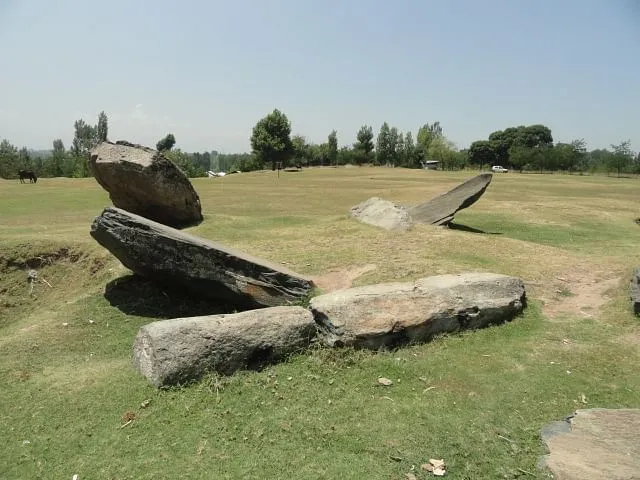Fawzul Kabeer, a young entrepreneur of the Kashmir valley is already famous for his GR8 willow bat industry among all the top national and international cricket teams and even for cricket legends like Sunil Gavaskar, Sachin Tendulkar and all other international players as they have already used GR8 bats while playing on the grounds.
Fawzul, a 31 year old with a childhood dream to make all possible efforts at national and international countries for his GR8 willow bat business has done MBA – Masters in Business Administration from Islamic University in 2014 just to be more capable for his business promotion at all level.
His hard work of 10 years has yielded excellent response from the current 6 – 7 countries like Afghanistan, Bangladesh, Sri Lanka, Oman, Bahrain and Scotland and in current T20 world cup – the GR8 product already has gained excellent momentum.
Fawzul’s main concern with the government is to provide 1 billion saplings of willow trees in Kashmir as the present number of willow trees is declining, and with new one billion saplings, the material for bat industry will play an important role, and boost the production of bats; the material is available in England or in Kashmir valley.
The business was started by his late father started in 1974. Fawzul Kabeer, owner of GR8, says the demand for Kashmiri bats has increased in international markets. They have already sent consignment to around one dozen countries and many orders are also in queue. “It will be a new beginning for us and we are hopeful that famous international players will play with our bats”, says Fawzul Kabeer.
Fawzul is very optimistic that Kashmiri bats will emerge as an alternative to English willow bats. And these bats are priced less than what English willow costs.
He says that the T20 world cup is very important platform to introduce our brand and product to the world as he had already put in a lot of effort, travelled to several cricketing nations and informed them about the Kashmir-Willow. “With the help of contemporary technology, we have taken this to a new level where we employ Computer Monitored Compression (CMC) to deliver precision, accuracy and compression to the bat, and this technology is only used by our company”, says Fawzul Kabeer.
Jammu and Kashmir government is also keen towards promotion of cricket bat industry enabling the Kashmir willow cricket bat to become a world class product.
In order to revive Kashmir’s cricket bat manufacturing and other wood-based industry, a team of Union Ministry of Medium, Small and Micro Enterprises officials had also visited valley to find ways for extending support. In this direction Common Facility Centre, Sethar was established at an estimated cost of Rs 4.61 crore with plant and machinery installed by PPDC, Meerut incurring an expenditure of Rs 2.46 crore.
The objective of this CFC is to facilitate seasoning of willow clefts and provide all facilities to the Cricket Bat Unit holders under one roof. This will enable the unit holders to use modern techniques in production of world class cricket bats.
There are 7 villages – Bijbehara, Charsoo, Hallamulla, Sangam, Pujteng, Mirzapor and Sethar – in South Kashmir where cricket bats are manufactured, providing bread and butter to hundreds of villagers. Moreover Sethar Sangam, Anantnag, has been notified as an industrial cluster for cricket bat manufacturing.
Meanwhile, Govt has also given registration certificates to bat manufacturing unit owners of Anantnag and Pulwama, which would enable them to avail all benefits from the government, aimed at strengthening the industry.
A team of officials from Meerut-based Process-cum-Product Development Centre (PPDC) also visited the valley to explore ways for hand-holding of MSMEs in wood-based industry. The team visited cricket bat cluster in Sethar village at Sangam area of Anantnag district to assess how the bat industry there could be revived. This cluster has been earlier funded by the Union MSME Ministry and now they are keen to provide an impetus to the cluster.
Pertinent to mention here that Kashmir willow is famous for its quality across the world and has gained huge attention from the cricketers. A study on sports goods titled ‘Indian Sports Goods Industry: Strategies for Tapping the Export Potential’ conducted by the Export-Import Bank of India (EXIM BANK) says that Kashmir willow bat is one such product, which holds significance as it is made from some of the best quality wood (willow) in the world.
The government is creating awareness and provides handholding amongst the bat makers with regard to GI tagging through field officers. The Directorate of Industries and Commerce has taken up the issue of granting Logo and GI tagging with the Director, Craft Development Institute (CDI), Srinagar.
Presently there are more than 400 cricket bat manufacturing units generating employment to about 8000 people directly and under the World Bank-funded Jhelum Tawi Flood Recovery Project (JTFRP), Faculty of Forestry SKUAST Kashmir has been engaged for the identification and propagation of the best quality willow (Salix Alba varcaerulea) being used for the manufacture of cricket bat. In SKUAST Kashmir, superior quality willow saplings were distributed for the manufacture of cricket bats among the beneficiaries associated with Sethar cricket bat cluster.
It is expected that with the use of superior willow the quality of cricket bats being manufactured in the Kashmir valley would be comparable to those manufactured in the rest of the world thereby increasing their demand exponentially.
DISCLAIMER: The views and opinions expressed in this article are the personal opinions of the author.
The facts, analysis, assumptions and perspective appearing in the article do not reflect the views of GK.






